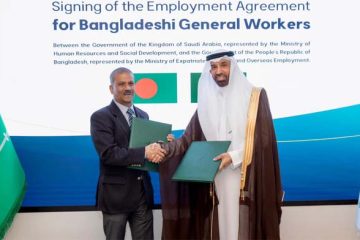The hearing on human rights issues in Bangladesh under the Universal Periodic Review (UPR) mechanism will be held at the United Nations Human Rights Council in Geneva on Monday.
The UPR is a mechanism established by the UN to assess and improve the human rights situation in each of the 193 member states. During the hearing of the second cycle of the UPR, Bangladesh is set to face questions from the member states on several human rights issues in the country, including labour rights and working conditions, which have come to the limelight after the collapse of a multi-storey building in Savar on Wednesday, in which hundreds of people were killed.
Quite a few countries, mainly European nations, have already put forward written questions in advance to Bangladesh with regard to human rights issues in the country, including extrajudicial killings, torture and ill-treatment by law enforcement agencies, enforced disappearances, war crimes trial, violence against women, labour rights, the Chittagong Hill Tracts peace accord, violence against journalists, and child labour.
The Bangladesh delegation, led by foreign minister Dr Dipu Moni, will reply to the questions of the member states and also defend the country’s human rights record since the first cycle of UPR in 2009.
In January, Bangladesh submitted its national report to the UN Human Rights Council detailing the steps taken by the government to implement the recommendations of the first cycle. Two other reports — one based on information from the UN and affiliated organisations and another based on information from the National Human Rights Commission and NGOs — have also been placed under consideration at the hearing.
The national report stated, “Against steep challenges of resource and capacity constraints, climate change and natural disasters, Bangladesh has made noteworthy progress in achieving some key gender and health-related Millennium Development Goals (MDGs) and a higher pace of human development compared to other South Asian countries.”
“While this Report seeks to capture progresses made since Bangladesh’s last UPR in 2009, it also responsibly acknowledges areas where we need to make further strides in cooperation with national and international partners in realizing for our people greater political, social and economic progress in larger freedoms,” it said.
The report presented Dhaka’s position on some of the issues such as extrajudicial killings, disappearances, the war crimes trial, detentions and torture.
On extrajudicial killings, the report said that there was no legal basis for this term (‘extrajudicial killing’) in the laws of Bangladesh.
The government of Bangladesh continues to maintain its zero tolerance policy towards violation of human rights by law enforcing agencies and wherever criminals resort to use of firearms during regular operations against them, lawmen may have to resort to use of force or exchange of fire only as the last means of protection of public life and property and to exercise the right of self-defence, it said.
On disappearances, the report said, “The existing legal regime does not contain any reference to ‘disappearance’/‘enforced disappearance’.”
Bangladesh has also made some future pledges to improve the human rights situation in the country. The government will continue to enact national legislation to implement international human rights instruments, cooperate with special procedures and mechanisms and consider extending invitations to special rapporteurs, give particular attention to empowerment of women, children and other vulnerable sections of the population, further strengthen institutions that promote human rights, democracy, good governance and the rule of law, strengthen human rights training and awareness programmes for parliamentarians, judges, civil servants, law enforcement agencies (LEAs), lawyers and journalists, promote realization of the right to development, pursue the issue of human rights and climate change at national and international levels, and fully involve non-governmental organisations (NGOs), civil society and the private sector in the follow-up to this UPR and in promoting human rights at all levels.
-With The Independent input




















